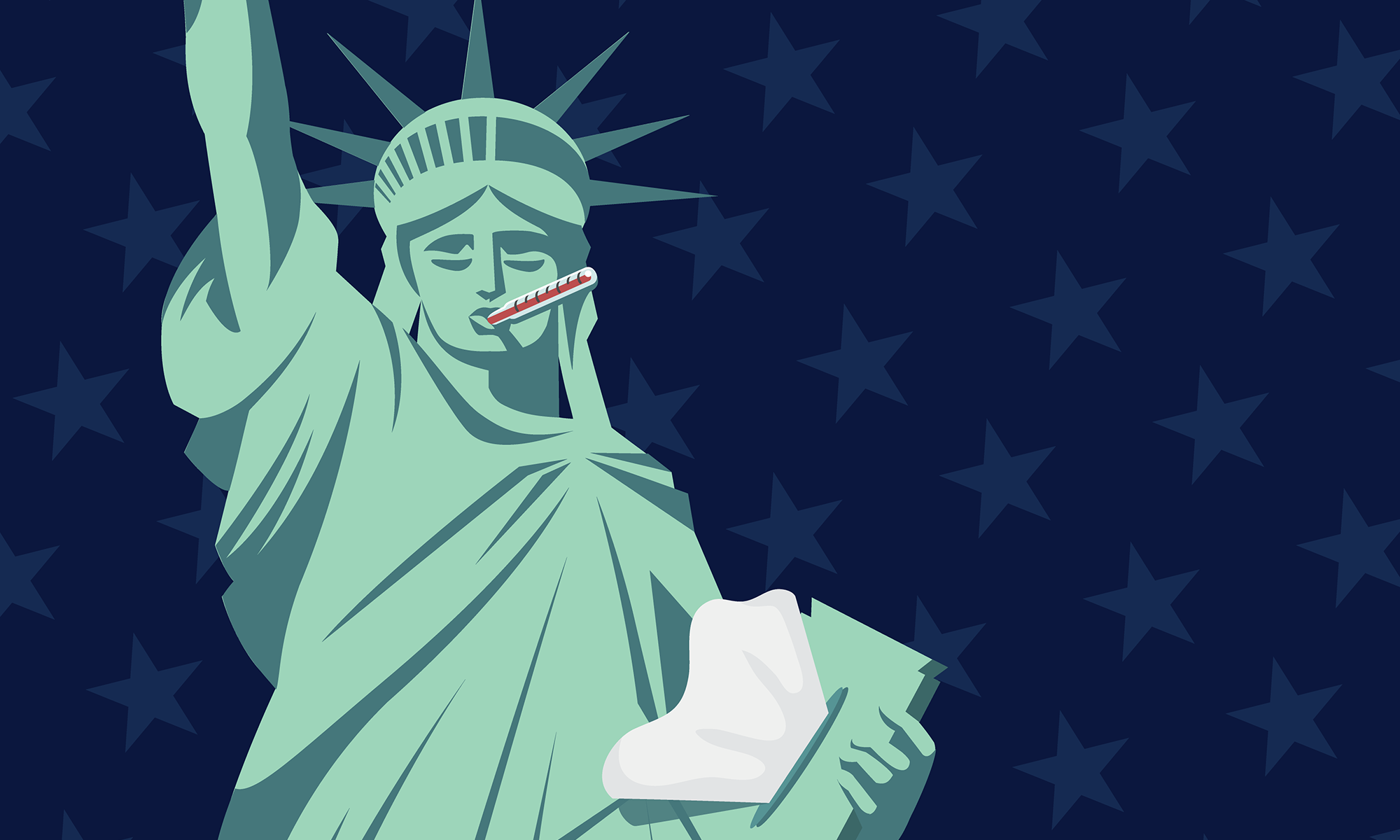Democracy is easily lauded, but it’s a complicated proposition, says W. J. T. Mitchell, this year’s Distinguished Visiting Humanist.
“We talk about democracy as if it’s an unmixed value,” he says. “But we’ve known since the Athenian democracy that it goes along with imperial adventurism, which was the downfall of Athens, and with the rise of tyrants and demagogues.
“It’s at the foundation of the democratic ideal, that it has to be hedged in by limits.”
EVENTS
W. J. T. Mitchell will take part in a variety of events during his visit to Rochester as this year’s Distinguished Visiting Humanist, a program of the Humanities Center.
April 19
“Crazy Talk: Madness and Montage in Film”
Screening and panel discussion, also featuring Rachel Haidu, Jeffrey Tucker, and members of the OnFilm Group.
5:30 p.m.
1400 Wegmans Hall
Free and open to the public
April 20
Panel discussion on the state of the humanities and Critical Inquiry. Mitchell joins Morris Eaves, Joan Rubin, Robert Doran, and Paul Duro.
10 a.m.
Humanities Center Conference Room D
Free and open to the public
“American Psychosis: Trump and the Nightmare of History”
Lecture
4 p.m.
Hoyt Auditorium
Free and open to the public
April 22
“Meet the Artist: Javier Téllez in Conversation with W. J. T. Mitchell”
2 p.m.
Memorial Art Gallery
Free with museum admission. Free to University faculty, students, and staff with valid ID.
Mitchell is the Gaylord Donnelley Distinguished Service Professor of English and Art History at the University of Chicago. His work involves broad questions of representation and imagery, and he frequently investigates issues of cultural politics and political culture.
While at Rochester, Mitchell will participate in a series of conversations about mass irrationality, delusion, and the representation of madness.
“I’m looking at the concept of madness in a very broad sense, as a social problem, as well as an individual issue,” he says. “Mob psychology and mass psychology are as important to the project as individual neurosis or psychosis.”
Part of his visit will be devoted to discussing questions of madness in film and art. He’ll participate in a screening and panel called “Crazy Talk: Madness and Montage in Film.” He’ll also take part in a conversation at the Memorial Art Gallery, with artist Javier Téllez, about cinema and mental health .
Mitchell’s son, Gabriel, was a filmmaker, who lived for 20 years with schizophrenia. One of his ambitions was to make a film about the entire history of madness as a cultural formation. He planned to look back to the Greeks and non-Western cultures and embrace both collective and individual forms of irrationality, Mitchell says.
He carried on the work after Gabriel took his own life five years ago, now writing a book that began as background research for his son’s film.
“It’s a personally motivated project, but the personal, as we know, is political,” he says.
And politics will fall under Mitchell’s lens during his campus visit, too. He’ll deliver a public lecture on April 19 that will probe the group psychology of American voters.
“We’re seeing a dramatic laboratory test of the endemic problems of democracy right now,” he says.
A scholar of images and the editor-in-chief of Critical Inquiry, an influential journal of arts, culture, and politics, Mitchell plans to discuss President Donald Trump as a cultural icon. “Every president has an image, and that image is subject to caricature,” he says. But Trump seems impervious, and Mitchell will devote some of his talk to examining that immunity.
He views the current political landscape, which he sees shaped by collective irrationality, with alarm. Legal structure, he says, is the bulwark against what he calls a “historical nightmare.”
“One of the reasons why it’s so important to have a constitution that’s durable and respected is that a constitution is a way of addressing collective psychology. The founders saw that in an individual person, what you might call a balanced mentality involves deliberation, careful forethought, a kind of argument in which you consider all alternatives, and then the establishment of rules and guidelines—self-regulation,” he says. “The division of powers between the executive, the legislative, and the judicial was crucial, partly because it’s a kind of psychological allegory. It’s a model of a well-balanced psyche.”
But when the elements don’t function properly—when any element is too powerful, or corrupted—the Constitution is endangered. Mitchell says: “It’s why everyone says we’re headed for a constitutional crisis.”
But he also sees signs for hope. He calls the legal probe being led by special counsel Robert Mueller “a sign of good health.”
“There are antibodies in the body politic. And the law is one of them.”



